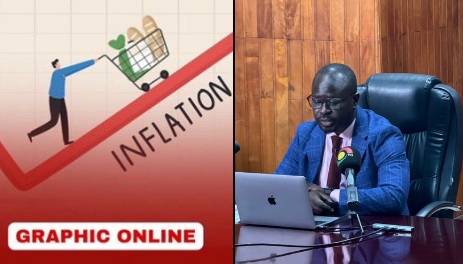Ghana’s inflation rate declined slightly in January 2025, falling to 23.5 percent from 23.8 percent recorded in December 2024, according to the Ghana Statistical Service (GSS).
Government Statistician, Professor Samuel Kobina Annim, announced the latest figures in Accra on Monday, February 3, 2025, indicating a marginal slowdown in price increases.
The decline was primarily driven by a drop in non-food inflation, which fell to 19.2 percent from 20.3 percent in December. However, food inflation continued to rise, reaching 28.3 percent from 27.8 percent the previous month.
The increase in food inflation was largely attributed to rising prices of vegetables, tubers, and plantains, which have consistently driven inflation over the past six months.
“In August 2024, food inflation was 19.1 percent, and we are now talking about 28.3 percent, an almost 10 percentage point increase over six months,” Professor Annim noted.
He highlighted that yam prices rose by 72.9 percent year-on-year, while fresh tomatoes recorded a 43.3 percent increase.
“When you disaggregate to the item level, you can identify the specific products driving inflation. Yams and tomatoes have had a much higher contribution to both month-on-month and year-on-year inflation,” he explained.
Inflation for locally produced goods also declined, falling to 25.7 percent in January 2025 from 26.4 percent in December 2024.
However, imported inflation rose marginally to 18.4 percent, up from 17.9 percent the previous month, reflecting the impact of global trade dynamics and exchange rate fluctuations.
The Western Region recorded the highest inflation rate of 49.9 percent, while the Volta Region had the lowest at 18.0 percent.
This slight decline in inflation marks the first drop in five months as Ghana transitions to new economic leadership under President John Mahama. The slowdown comes at a time when Johnson Asiamah has been nominated to replace Ernest Addison as the Governor of the Bank of Ghana.
The central bank recently maintained its key interest rate at 27 percent, forecasting that price pressures could ease as the government tightens public finances.
Professor Annim stressed the importance of collaboration between policymakers and financial institutions to address rising food prices and stabilise inflation.
“The Ghana Statistical Service continues to engage policymakers. The Bank of Ghana does not only rely on headline figures but also disaggregated data to inform policy decisions,” he stated.
